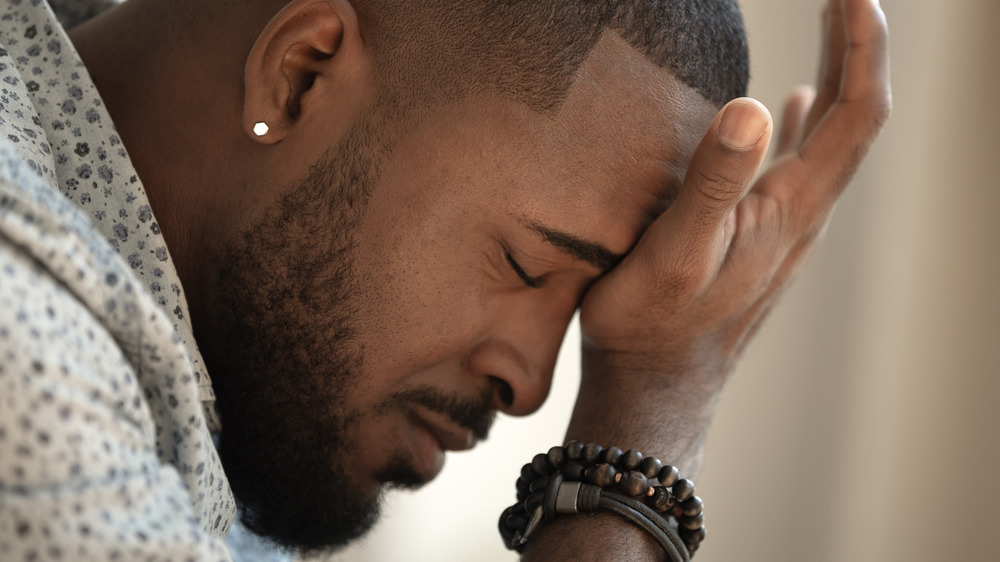How Long Your Withdrawal Symptoms Will Last After Quitting Caffeine
Some people are naturally morning people. And some people need a big cup of coffee before they can face the day ahead. If you fall into the latter group, but have been trying to cut back or even quit caffeine all together, be sure you know the symptoms of caffeine withdrawal before you say goodbye to your morning pick-me-up.
Caffeine is the most commonly used stimulant in the world (via Johns Hopkins Medicine). The psychoactive drug is found in coffee, tea, and even chocolate. It's estimated that 80 to 90% of people in North America consume caffeine on a daily basis. By interfering with the body's sleep-wake cycles, caffeine can temporarily increase energy and feelings of wakefulness (via Healthline). Researchers at Johns Hopkins University recognize caffeine withdrawal as an official disorder. So when someone stops using caffeine suddenly, the adjustment can cause a host of symptoms that range from headache to flu-like aches and fatigue.
Common symptoms to watch out for
People that drink as little as one cup of coffee a day can experience withdrawal once they quit caffeine. According to findings published in the journal Psychopharmacology in 2004, 170 years of research, 57 studies, and 9 surveys on caffeine use show that symptoms of caffeine withdrawal start in as little as 12 to 24 hours. These symptoms typically peak in intensity between 24 and 48 hours. Headaches, fatigue, dysphoric mood, and other painful symptoms can last up to 9 days after dosing stops.
Headaches are the most common symptom of caffeine withdrawal. Caffeine constricts your blood vessels, decreasing the flow of blood to the brain. When blood flow increases again, your brain takes time to adjust to the change which can cause painful headaches. While doctors acknowledge that many people continue consuming caffeine in order to avoid withdrawal symptoms, they say that it is possible to gradually reduce caffeine intake without experiencing unpleasant side effects. Slowly stepping down from caffeine and increasing hydration will help ease the transition.


